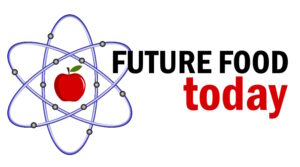The new Horizon Europe project, AGRI4POL, has been designed to assist the transition of agriculture from being a pressure on pollinators to becoming a positive force for biodiversity, crop pollination services, ecosystems and people.
Threats to pollinators are a recognised worldwide problem. Intensive agriculture is among the principal threats to pollinator biodiversity and the crop pollination that pollinators provide. Typically, crop breeding has tended to overlook the benefits of pollination for sustained crop yields in favour of other crop traits. There is an urgent need to transform agriculture in a way that supports crop yields and food security while preventing harm to the natural systems that agriculture depends on.
The AGRI4POL project (Promoting sustainable agriculture for pollinators) – which began in January 2025 and will run for four years – takes an interdisciplinary and transdisciplinary approach to drive a transition towards sustainable, pollinator-friendly farming. The project aims to deliver an integrated analysis of the relationship between crops, farming systems and pollinators.
The project has seven objectives.
It aims to work with all sectors on research and solutions for promoting pollinator-friendly farming. It also looks to evaluate crop genetics, varieties and floral traits regarding pollinator attraction, to stimulate the breeding of future pollinator-smart crops. Another objective is to establish the benefits of pollinator-friendly farming systems for farmers and farming, and to optimise ecological and landscape features for crop pollination, pollinator biodiversity and multiple ecosystem benefits. It also aims to assess the social and economic opportunities and obstacles presented by pollinator friendly farming options, as well as evaluate how policies and practitioner awareness influence the uptake of pollinator-friendly farming both nationally and internationally. Finally, the project hopes to communicate and promote the benefits of pollinator-friendly farming.
Coordinated by the French National Research Institute for Agriculture, Food and the Environment (INRAE), the AGRI4POL consortium comprises 20 partners from across Europe plus three institutions from China. The consortium’s expertise comprises multiple scientific disciplines, spanning ecology, agriculture, economics and social sciences, as well as skills in science-society engagement and communications.
Adam Vanbergen, the project coordinator, said: “We are tremendously excited and looking forward to carrying out top-quality research and innovation to both reduce the pressures on pollinators from farming and showcase how pollinators benefit farming and society more widely. We have an ambitious program ahead but with such an excellent team I am confident of success.”
